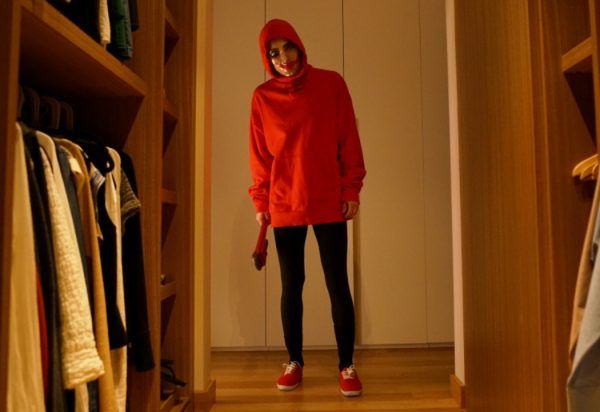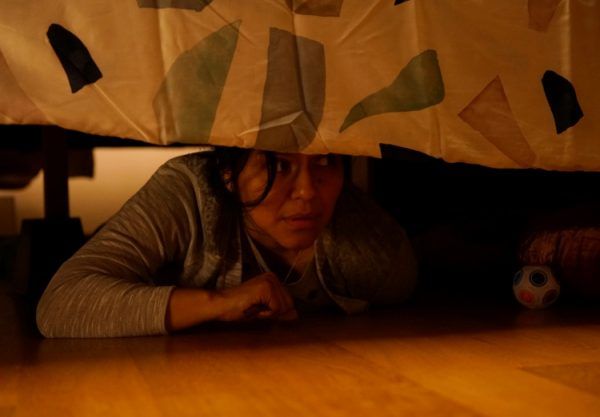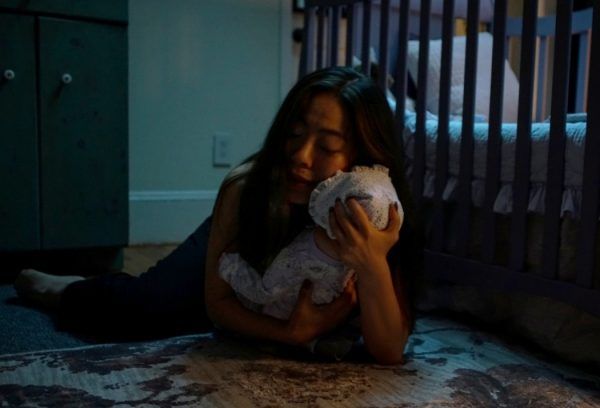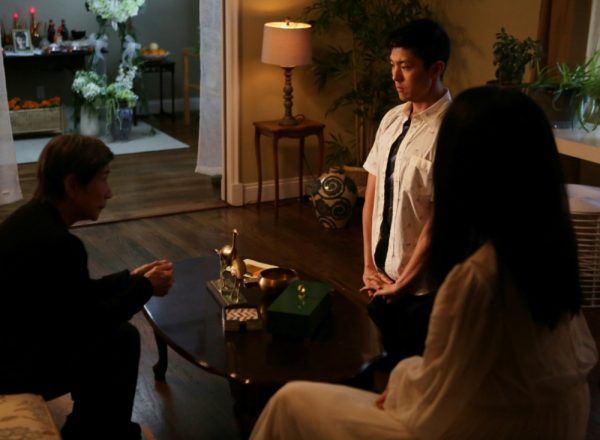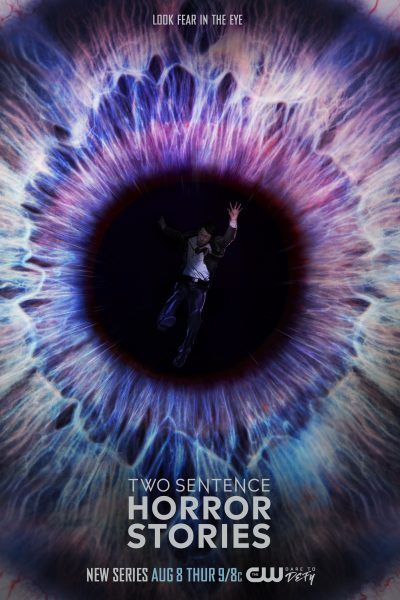From creator Vera Miao, The CW’s Two Sentence Horror Stories (which started out on CW Seed and is now airing on The CW) is an anthology of contemporary tales of horror inspired by the viral fan fiction idea comprised of two sentences. No matter the advancements in technology, social progress, inequality and environmental degradation, we are still haunted by universal primal fears, filtered through our anxieties, and that’s explored in this series that will send shivers down your spine.
During this 1-on-1 phone interview with Collider, executive producer/writer/director Vera Miao talked about her unusual journey to being a storyteller, why this series is the perfect opportunity to weave in social and political issues, her original pitch for this show, how they figure out what their two-sentence horror stories will be, why they have to cut some concepts, and what she’d like for the next step in her career.
Collider: It sounds like you had a bit of an unusual journey, going from non-profit to actor to now being a showrunner, producer, writer and director. How did that happen? Were you doing other things with the goal to eventually get into production, or was this never part of the plan?
VERA MIAO: It’s funny, I can’t say that I had a plan. That’s for sure. As you can probably imagine, looking at the highlights of my trajectory, there with no plan. Throughout everything that I’ve done, what’s always been consistent, since I was very, very, very small, was stories. I am a notorious bookworm. I was always the nerd with the thick glasses, who spent all of her time in the public library, and was the kid who walked down the street reading a book. Books, comics, TV shows and films were just a consistent through-line in my entire life. I had lots and lots of different things going on. I had a very early commitment to social justice work in the non-profit sector, and was very active, all through college, and started in that sector, before I even graduated. A few things happened. I’ve always had a left brain/right brain. I’ve always wanted to feel the creative side of things, and in social justice nonprofit work, I started to realize that storytelling is a way that humans make meaning and storytelling was a powerful defining force in how I think about the world.
The move into storytelling, as my career, would seem like a 180 from the outside, but internally for me, was an extension of this thing that I had my whole life, which is how what I do can contribute, even in the most insignificant way, to a larger purpose, hopefully. So, when clicked into that, I could, for myself, justify formerly exiting the non-profit sector, in a professional capacity, and committing myself to this path of storytelling. It’s true, my entry was acting. I consider that a little bit like my film school ‘cause I did not go to film school, and that entry was through story. I studied at the Atlantic Theater Company, which is David Mamet and William H. Macy’s company. Because it’s Mamet, story is god and the writer is god. That really shaped my understanding of dramatic story structure. They were also very clear about just making stuff – writing stuff, producing stuff, making your own things – and not waiting.
As someone who was older and had a whole other career, I got into this with a little bit more of an explicit mission on my side. And quite frankly, as an Asian woman, it wasn’t like the acting jobs were just falling in my path, so I just started making my own stuff. That process of writing, producing and, eventually, directing made me realize that my original desire to be telling stories that have meaning was still the flame that burned the hottest, and the way that it fit the most, in terms of what my role was, was really as a director. The path through acting was formative in making me the kind of storyteller that I am and helped me understand how this process works. I’m very appreciative of it because I didn’t really understand actors and the acting process. When I started directing and writing, all of the pieces seemed to click into place.
This show explores a lot of social and political issues, and you can explore a lot of different thing because of the anthology aspect of it. Is this series the perfect opportunity to blend all of that stuff together?
MIAO: Yeah, for sure. It’s just a direct reflection of how my brain works. Stories help make meaning, and I’m always trying to figure out myself, people around me, and my community, society, and the world. Those are the things that preoccupy my brain, all the time. Stories are a much more accessible and human way to keep processing and keep trying to make meaning, so it felt natural. It was less of an intentional extension of my activism work ‘cause that’s not how I see it, but I don’t see it as separate, either. I didn’t go into activism as an international part of the processes. It was an organic evolution of the things that I was really passionate about and that I thought mattered, in the same way that telling stories matters so much. Storytelling, to me, is just the most honorable tradition. So, it does end up coming out, particularly in this series because it’s episodic. I’m clearly a The Twilight Zone fan. There are a lot of natural ways in which you get to do character studies in the world. There are specific kinds of characters for dealing with specific kinds of things, in the world around them.
When you first went in to pitch this idea, what were you expecting? Were you expecting that it would just be an interesting experience, or did you go in expecting something to come out of it?
MIAO: I, 100%, did not expect it to get made. In general, the odds are long in this industry, across the board. I went into the meeting not expecting anything. I was just very honest and transparent about what I wanted to do with the show, and what it was and what it wasn’t. I remember in that meeting, I said, “This is not a jump scare, roller coaster ride of gory horror. This is psychological and maybe sometimes even a little slow burn. It very much looks at previous cinema, and these stories present opportunities to go deeper into characters, but also how people intersect with some of the issues that preoccupy our every day. And it’s really an opportunity to showcase some talent that, perhaps, are not as well known or mainstream yet.” A bunch of the directors are gonna be the folks leading this industry, in the very near future. I was really upfront because I didn’t think anything was gonna happen, so I was really taken off guard, when the idea hit. It was just one of those situations where you think you know what’s gonna happen next, but you really don’t.
When you try to figure out what stories you want to tell in a season, do you come up with a lot of two-sentence possibilities and then narrow it down, or do you only come up with as many as you need, in any given season?
MIAO: The first iteration of this show was different, in the sense that it was a shorter form series that was initially released digitally. That season, I wrote all of the scripts. It was only this current season that’s airing on The CW that I had a writers’ room so the process was different because of that. But the process is very similar, in the sense that we had to come up with way more ideas than actually ended up being greenlit, as episodes. It’s challenging, but it’s also fun. You can’t repeat or overlap, either episodes to each other, or episodes to previous seasons. I always tell people that I’m entryway agnostic. However we get there, we get there. Sometimes you start with a two-sentence horror story, itself. Other times, we start with a sub genre of horror that we haven’t explored yet. Other times, it’s about a scenario that one of us is personally really frightened of, as a starting point. Other times, it’s about what kinds of characters or context we think are really interesting, and that we’d love to explore through a horror lens. It’s almost like a matrix that I’ve constructed for the writers’ room, where we had sub genres and issues and characters and fears and stories. Whatever gets us to a strong, tight idea, however we start the path, to end there is good by me. And that was the case for me, too, when I was writing by myself. It’s just exponentially amplified when you have a writers’ room.
Have you also had any instances where there were any concepts that you just really wanted to do, but couldn’t work it out in a shorter time frame?
MIAO: Yes, there have been many of those, actually. Sometimes they were too ambitious for the time frame. Other times, we’re just really thoughtful about the story, and sometimes when you put particular kinds of issues or communities or characters or situations through a horror lens, because you’re looking at it through a horror lens and the conventions of the genre that you’ve chosen, it can create unintentional messages or unintentional characterizations. And sometimes we had stories where we just couldn’t figure it out, in a way where we were still, to a certain degree, on top of the moral of the story. It was actually quite complex, in thinking through all of the different things we’re trying to lift in these relatively short bytes of psychological horror. We feel a responsibility to build and realize a full character, and not skimping on that. We want to be able to really build the world that they’re in and the situation that they’re facing while still leveraging a twist that has some, hopefully, gratifying catharsis, in a short period of time. You want it to be doable, from a production perspective, but also responsible in what we’re saying. So, there’s definitely stories left on the floor.
Ideally, what would you say the next step is for you, beyond this show and maybe doing more seasons of this show? What have you thought about, as far as what you would like to do next?
MIAO: For me, I’m currently working on a long-running, fairly large show, right now, which is interesting because it’s serialized. In general, for me, my real focus is to be able to direct a feature. I’ve had several projects in development, and a few that I was actually about to direct, but in the way of Hollywood and movies, things get delayed and derailed. So, I’m still very much focused on being able to work long form and direct feature.
Did you decide to wear so many hats because that was something that you wanted to do, so that you could be involved in all aspects of production, or did that happen out of necessity?
MIAO: By virtue of being an independent filmmaker, you do everything. My first project that I did, I made a five-episode web series, where I wore every single hat, as well. And I made a feature with a friend, and we’d never made a movie before. She directed and I produced, and we had a premiere to Slamdance, got distribution, and saw it all the way through the delivery with our distributor, so that was a big learning lesson. When you’re an independent filmmaker and you’re not waiting for permission to say something, by nature of necessity, you have to do everything. With Two Sentence Horror Stories, the director/showrunner is the idea of showrunner that I connect with. I’ll be completely transparent, I wasn’t aiming to be a showrunner, but it’s a position that makes a lot of sense for how completely I saw the show. It played up on how much I love collaboration, and quite frankly, a lot of stuff that I’ve done in previous other careers, in terms of really being able to convey a vision, but also work in collaboration with other folks at the table, to really expand and evolve that vision into something really exciting that I couldn’t come up with on my own. So, the writers’ room was fantastic, as was working with directors beyond me to direct episodes, and having my department heads really crafting and adding details to develop the look and visual aesthetic and principle that I was setting for the show, itself. It ended up being wonderful, quite frankly, to be in that position to be able to really make sure that what your original vision is, really comes through. So, it emerged out of necessity, but it was also something that was a natural fit for how I think about the projects that I wanna make.
Two Sentence Horror Stories airs on Thursday nights on The CW.


